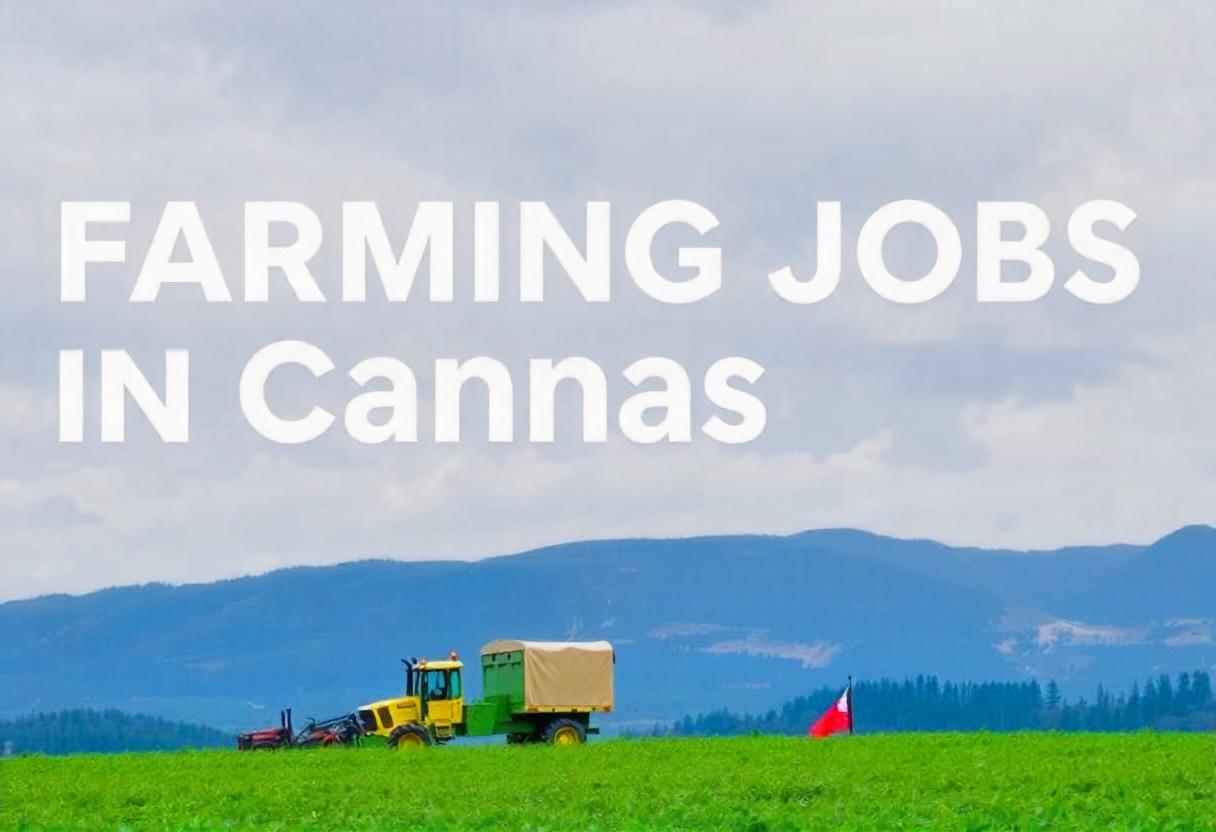
Canada’s agricultural sector is a cornerstone of its economy, providing a range of employment opportunities across diverse farming operations. For foreign workers interested in farming jobs in Canada, the prospect of visa sponsorship can be a significant factor. This article explores the landscape of farming jobs in Canada that offer visa sponsorship, including the types of roles available, the visa processes involved, and the benefits and challenges associated with working in Canada’s agricultural industry.
Overview of Farming Jobs in Canada
Farming jobs in Canada span a wide range of activities, including crop cultivation, livestock management, dairy farming, and specialized agricultural operations. These roles are critical to maintaining the productivity and sustainability of Canada’s agricultural sector. Common farming jobs include:
- Crop Farmers: Responsible for planting, growing, and harvesting crops such as wheat, corn, canola, and vegetables.
- Livestock Farmers: Manage the care and breeding of animals like cattle, pigs, and poultry.
- Dairy Farmers: Oversee the production of milk and dairy products.
- Farm Workers: Perform various tasks including planting, harvesting, and maintaining equipment.
- Agricultural Technicians: Provide technical support and expertise in areas such as soil management and crop protection.
Visa Sponsorship for Farming Jobs in Canada
For foreign workers, obtaining a visa to work in Canada’s farming industry typically involves several steps. The most common visa options include:
1. Temporary Foreign Worker Program (TFWP)
The TFWP allows Canadian employers to hire foreign workers for temporary positions when qualified Canadians are not available. This program is widely used in the agricultural sector to fill seasonal or short-term labor shortages. Key aspects of the TFWP include:
- Employer’s Role: Employers must obtain a Labour Market Impact Assessment (LMIA) from Employment and Social Development Canada (ESDC) to demonstrate that no Canadian worker is available for the job. The LMIA process ensures that hiring a foreign worker will not negatively impact the Canadian labor market.
- Worker’s Role: Once an LMIA is approved, the foreign worker can apply for a work permit. The work permit is typically tied to the specific employer and job offer.
2. International Mobility Program (IMP)
The IMP allows employers to hire foreign workers without the need for an LMIA, provided certain conditions are met. This program is often used for positions that fall under specific categories or agreements, such as intra-company transfers or international agreements.
- Employer’s Role: Employers must ensure that the position qualifies under the IMP guidelines. They also need to provide a job offer and comply with any additional requirements specific to the program category.
- Worker’s Role: Foreign workers can apply for an open work permit or employer-specific work permit, depending on the nature of the job and the program under which they are applying.
3. Agri-Food Pilot Program
The Agri-Food Pilot Program is a recent initiative designed to address labor shortages in Canada’s agri-food sector. It provides a pathway to permanent residency for experienced workers in specific agri-food occupations.
- Eligibility: To qualify, workers must have experience in eligible occupations, meet language and education requirements, and secure a valid job offer from a Canadian employer. The program targets roles such as general farm workers, harvesters, and meat cutters.
Benefits of Working in Canada’s Agricultural Sector
- Job Opportunities: Canada’s agricultural sector offers numerous job opportunities across the country, particularly in rural and remote areas where labor is often in high demand.
- Competitive Wages: Farming jobs in Canada typically offer competitive wages, and certain roles may come with additional benefits such as accommodation or transportation allowances.
- Pathway to Permanent Residency: Programs like the Agri-Food Pilot offer a pathway to permanent residency for skilled workers, providing an opportunity for long-term employment and settlement in Canada.
Challenges and Considerations
- Seasonal Work: Many farming jobs are seasonal, which may result in periods of unemployment between harvests or planting seasons.
- Remote Locations: Agricultural work is often located in rural or remote areas, which may require adjustments to living conditions and access to amenities.
- Labor Conditions: Farming can be physically demanding and may involve long hours, adverse weather conditions, and manual labor.
Farming jobs in Canada with visa sponsorship offer valuable opportunities for foreign workers to contribute to the country’s vital agricultural sector while gaining international work experience. By understanding the visa options available, the requirements for each program, and the benefits and challenges associated with farming jobs, prospective workers can make informed decisions about pursuing employment in Canada’s farming industry. With a focus on addressing labor shortages and supporting skilled workers, Canada continues to welcome international talent to strengthen its agricultural workforce and ensure the continued success of its farming sector.